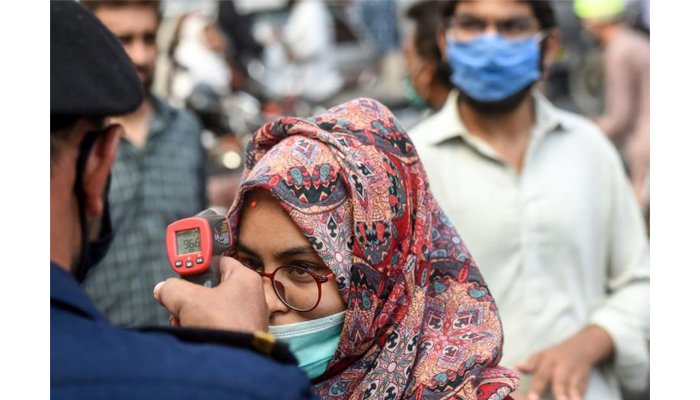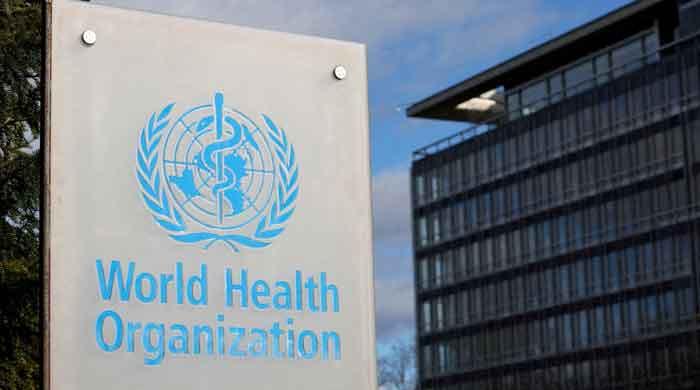Active COVID-19 cases exceed 90,000 mark in Pakistan
Country's coronavirus positivity rate stays over 10% on eighth consecutive day, NCOC stats show
January 27, 2022

- Pakistan's COVID-19 positivity ratio reaches 11.91% in last 24 hours.
- Country reports 7,539 new coronavirus cases, NCOC stats show.
- 25 more succumb to virus, taking death toll to 29,162.
ISLAMABAD: Pakistan's active COVID-19 case count crossed the 90,000 mark, National Command and Operation Center (NCOC) stats showed Thursday morning, as thousands continue to contract the infection amid a spread of the Omicron variant.
The coronavirus positivity rate, meanwhile, is still over 10% for the eighth day in a row despite a slight decline recorded in daily numbers during the last few days, data by the NCOC showed.
The statistics issued by the NCOC suggested that 7,539 new infections were detected overnight after 63,272 diagnostic tests were conducted countrywide, which placed the country's positivity rate at 11.91%.
With the detection of new cases, the number of total cases has jumped to 1.393 million, while the active case count stands at 91,854.
Meanwhile, Pakistan recorded the highest number of deaths from COVID-19 in a single day since October 14, 2021, as 25 infected people succumbed to the virus, taking the nationwide death toll to 29,162.
A total of 27 people died of COVID-19 on October 14, 2021.
The more people fall prey to COVID-19, the more the number of patients in critical condition grows, as 1,240 patients were said to be in critical care units on Thursday.
Considering the gravity of situation, the federal government has decided to make necessary arrangements before allowing citizens to get back to their normal routine and impose further restrictions in cities with a positivity ratio higher than 10%.
High positivity rate cities
- Karachi — 26.32%
- Peshawar — 35.89%
- Hyderabad — 22.41%
- Rawalpindi — 12.29%
- Lahore — 15.25%
- Islamabad — 16.76%
- Bahawalpur — 5.61%
- Gujranwala — 3.26%
No passenger allowed in airports without mask: CAA
The Civil Aviation Authority (CAA), in a notification late last night, issued directions to the airport staff across the country to wear masks amid the rise in cases due to the Omicron variant.
Read more: Seven days on, COVID-19 positivity rate in Pakistan still higher than 10%
The notification said staff members and passengers would not be allowed inside the airport premises without wearing masks.
'More restrictions'
Medics a day earlier told Geo News that the continuous trend of rising cases due to the Omicron variant has moved up the numbers of patients on critical care.
Meanwhile, officials have said that Pakistan might experience its peak in the first or second week of February.
"More restrictions are expected this week to control this situation," officials said.











